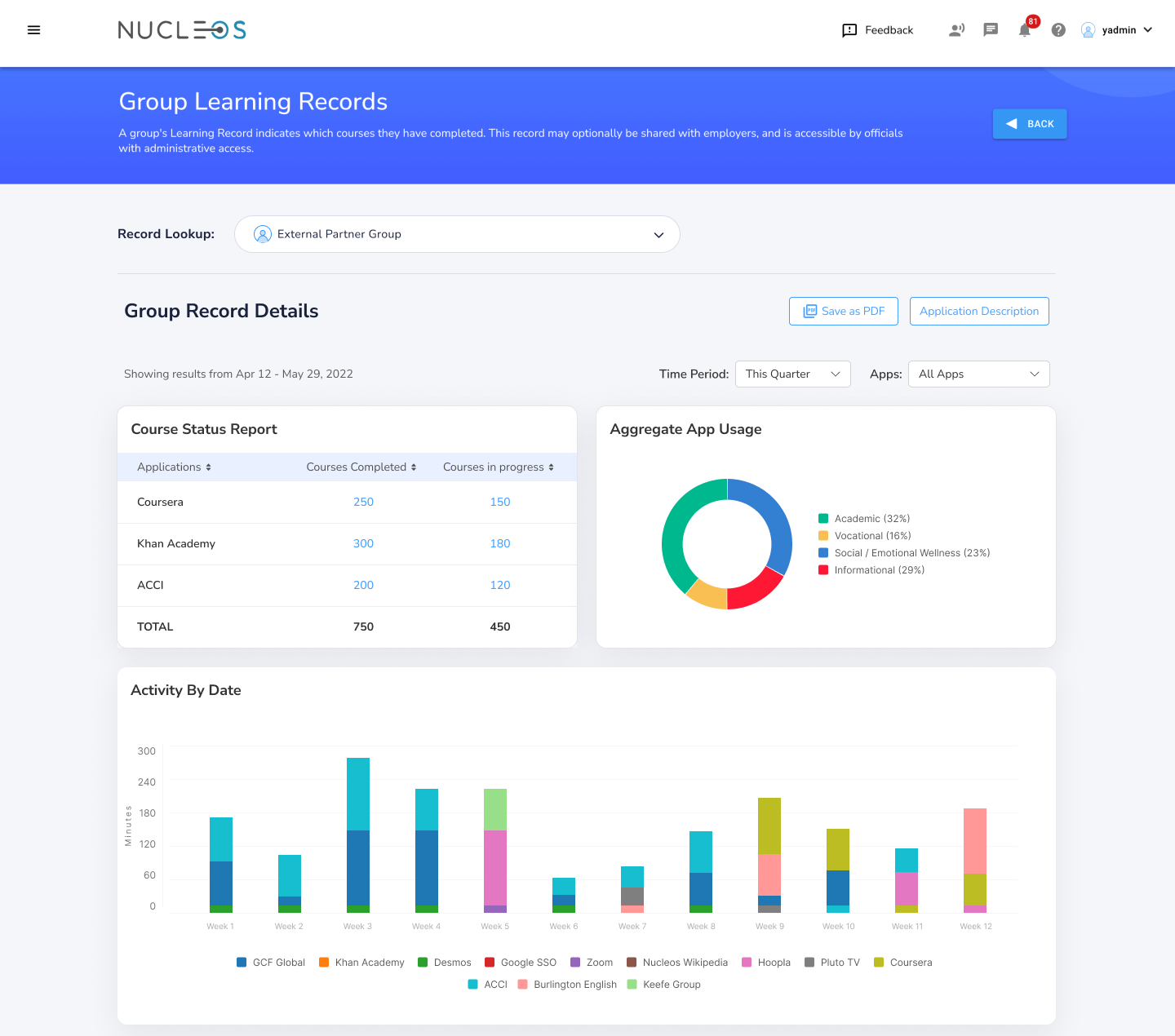Nucleos puts secure, tablet-powered education in the hands of inmates
Inmates in correctional facilities around the country have wildly varying levels of opportunity to prepare for life after release. Nucleos is a startup that hopes to make the kind of e-learning tools we tend to take for granted available to inmates with an all-in-one service that’s free for them to use.
There are numerous barriers between inmates and the resources they may want or need, but in this case what has happened is that in-facility tech hasn’t caught up with the outside world’s increasingly web-focused education platforms.
Think of all the educational content available online in lectures, free courses and things like entirely online community colleges and trade schools. It’s just a click away — if you have a computer you can use regularly that isn’t severely limited for security reasons. It’s a tragedy-of-the-commons situation: If 99 inmates use a resource for normal stuff, and the 100th manages to break a rule or law with it, you better believe it’s getting locked down.
“Without a solution like Nucleos, almost 95% of digital e-learning and training material can’t be used in prisons or jails due to security reasons. What sets us apart is that we handle all security aspects, ensuring that all e-learning programs are delivered safely and securely. Simultaneously, we disable any components that could enable prohibited communication with the outside,” said co-founder and CEO Noah Freedman.
They don’t make the tablets or the educational materials, but act as a one-stop shop for bringing those things into facilities. Nucleos also tracks the courses and credentials so that a person can be ready to use them during reentry and their job searches.

The Nucleos admin interface. Image Credits: Nucleos
Some well-resourced prisons may have something like this already, but most don’t, and even if they do, it might be a solution that charges inmates. Like Ameelio, Nucleos just saw a better, more modern way to provide something inmates need, and to do so for free.
The company works with facilities and authorities to provide tablets to inmates with access to e-learning resources, as well as authorized media like e-books and movies through the library system — and, in the future, perhaps also things like video calls and messaging.
It’s not free to operate, of course. The “reentry-as-a-service” program is supported by public money, such as via San Francisco’s “People Over Profits” program. And Nucleos recently raised $3 million in private investment and grants to keep the lights on while pursuing more such deals. iT1, Western Governors University Labs, ScaleGood Fund and Sanjay Srivastava provided the capital. It also recently reclassified itself as a public benefit corporation.
There’s always a danger in situations like this, however, that a self-serve, tech-based option supplants in-person or more diverse resources. For instance, a prison might limit in-person visits when video calling becomes popular and reap the benefit of increased per-minute payments (usually paid by already low-income families of inmates). I asked Freedman whether he thinks this is a danger with a program like Nucleos.
“Technology is coming into prisons and jails already, and I don’t see this as a trend that can really be stopped, or at least not without greater negative than positive consequences,” he said. “Our model, and I think the best approach, is to work with existing in-person education partners and provide them digital tools to support their programs, but don’t replace them. The unfortunate reality though is that many people are denied access to programming at all in-person currently, because they are in solitary housing, or classroom space is limited, or assigned job schedules for incarcerated people conflict with class times. In many states maybe only 5% of the population has access to classroom programming.”
“I think the best model here is a blended model, with the educators and in-person stakeholders and partners in the driver’s seat, working with a tech partner that is aligned in their vision and incentivized to produce strong learning and post-release outcomes, and ensure that facilities stay on-board with full support for in-person classes,” he continued. “Where state colleges are leading bringing tech in for their programs, I think it is important for them to work with DOCs directly to ensure that suitable guidelines and regulations are adopted by the DOC that facilitates increased access and digital support without undermining in-person opportunities.”
Freedman also pointed out that many incarcerated people have low digital literacy for many reasons, and simply providing a digital tool like a modern tablet and online learning interface is itself an invaluable lesson.

